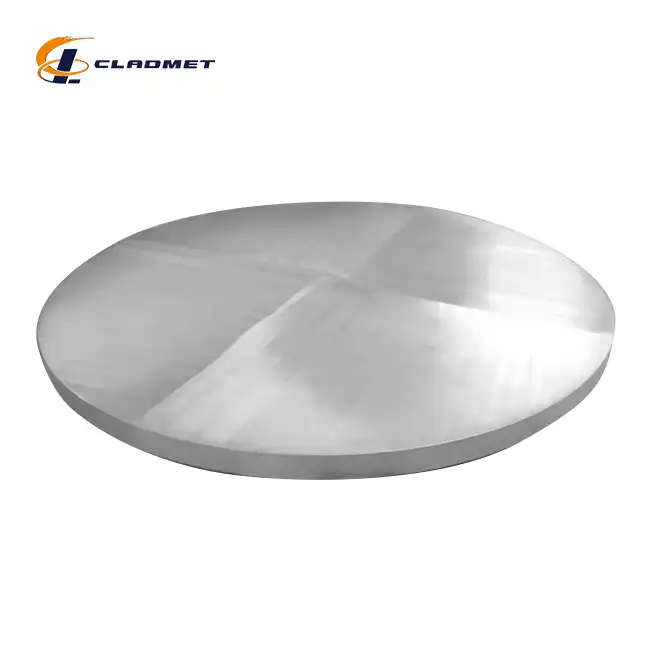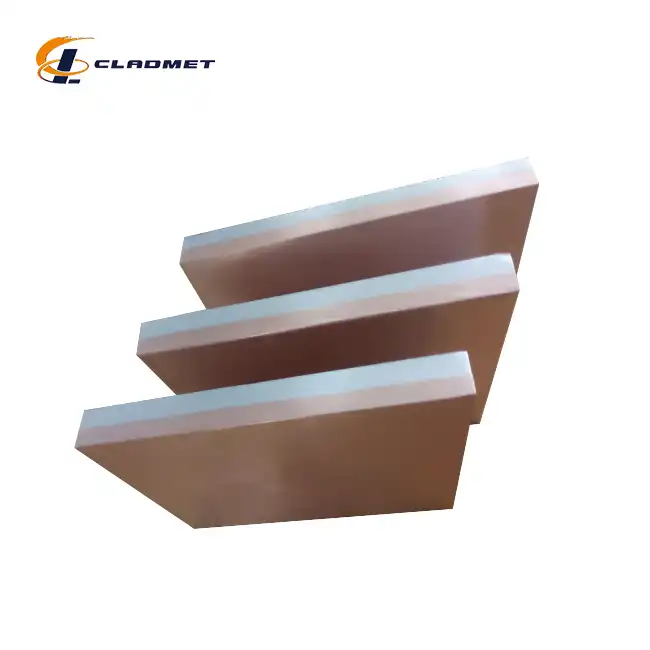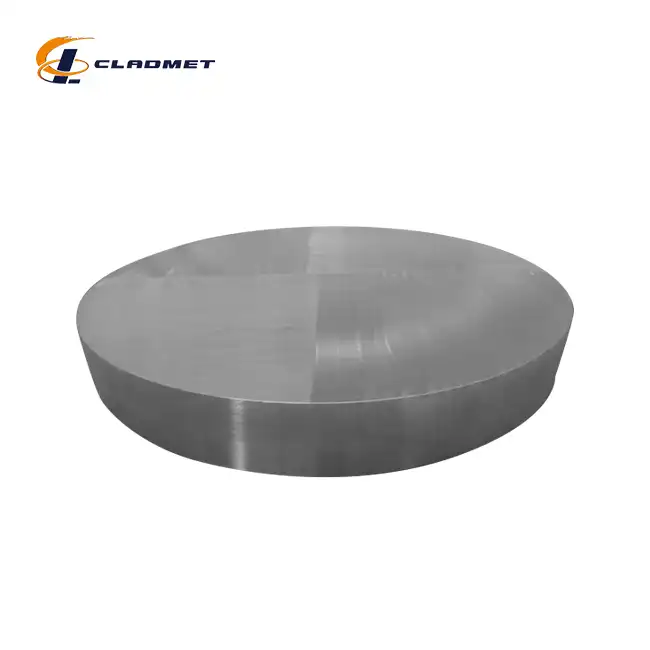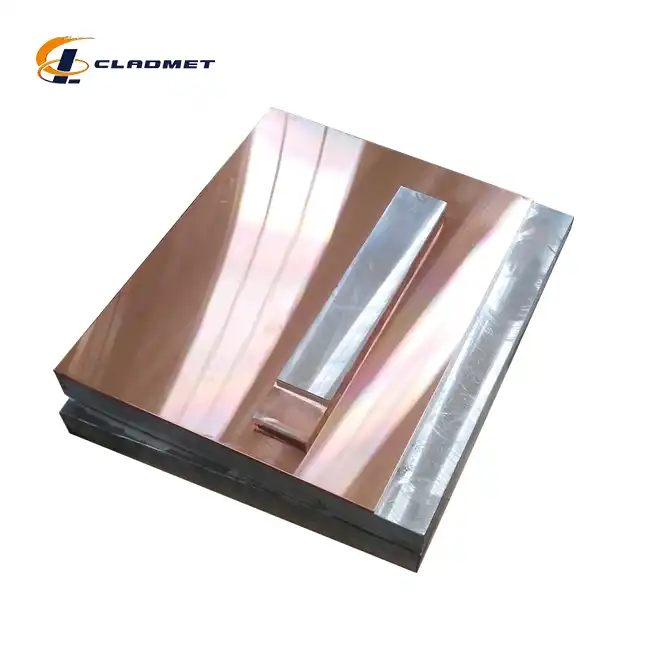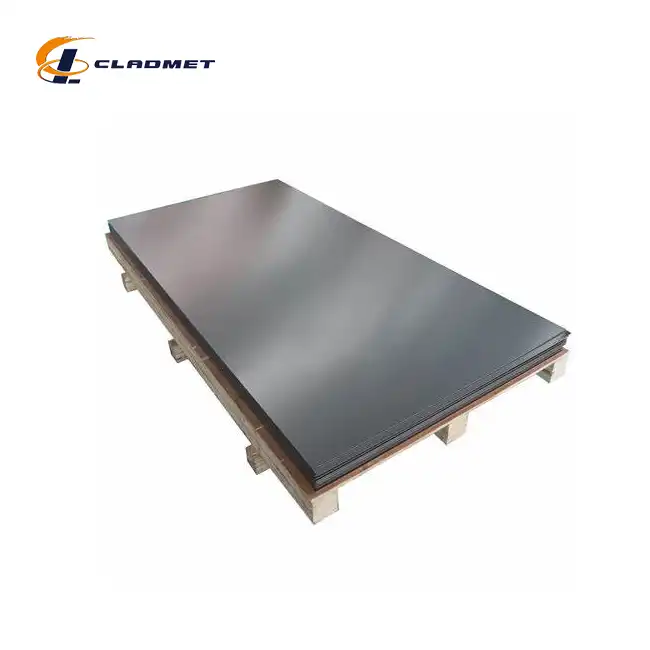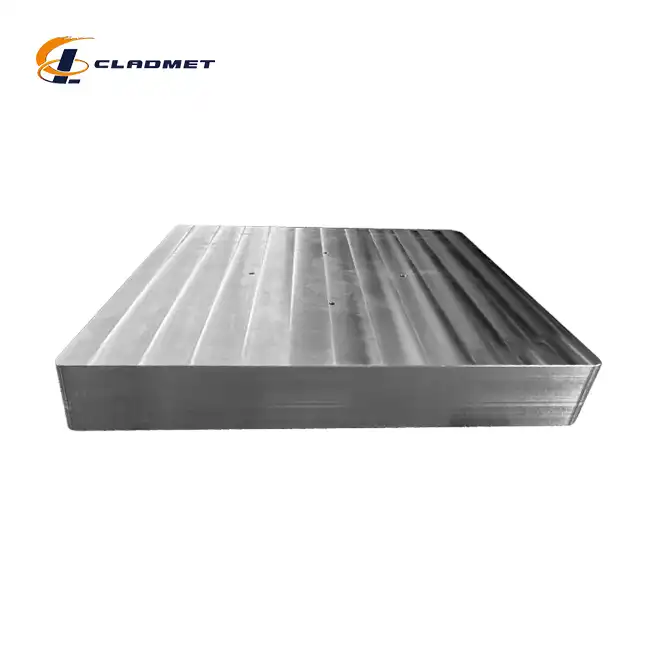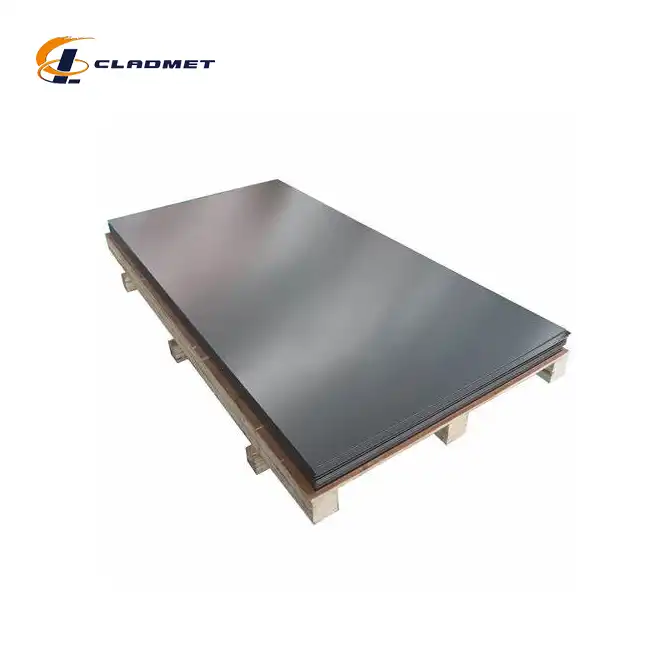What are the Benefits of Using Pure Nickel Plates in Industrial Applications?
 2025-03-21 09:48:35
View:389
2025-03-21 09:48:35
View:389Pure nickel plates have become an essential component in various industrial sectors due to their exceptional properties and versatile applications. Industrial Pure Nickel Plates offer unmatched advantages in demanding environments where corrosion resistance, thermal stability, and durability are paramount. These plates serve as critical materials in chemical processing, energy production, electronics manufacturing, and numerous other industries where extreme conditions prevail. As global industrial processes continue to advance and face increasingly challenging operational environments, the superior characteristics of pure nickel plates make them an invaluable material choice for engineers and manufacturers seeking reliable performance and extended service life.

Superior Corrosion Resistance Properties
The outstanding corrosion resistance of pure nickel plates is one of their most significant advantages in industrial settings. This property alone makes Industrial Pure Nickel Plates indispensable in numerous applications where exposure to corrosive substances is unavoidable.
Resistance to Alkaline Environments
Industrial Pure Nickel Plates exhibit exceptional resistance to alkaline environments, making them ideal for use in caustic soda production and other alkali processing applications. When exposed to sodium hydroxide, potassium hydroxide, and other strong bases, pure nickel maintains its structural integrity even at elevated temperatures up to 315°C. This remarkable property stems from nickel's ability to form a passive oxide layer that shields the underlying metal from chemical attack. In comparison to stainless steel, which may experience stress corrosion cracking in hot alkaline conditions, pure nickel plates remain stable and reliable. This characteristic significantly extends equipment lifespan and reduces maintenance requirements in alkali processing facilities. The thickness range of 0.5 mm to 50 mm offered by Baoji JL Clad Metals Materials Co., Ltd. allows for precise selection based on the specific alkaline environment and pressure conditions, ensuring optimal performance while meeting international standards including ASME, ASTM, and JIS specifications for chemical processing equipment.
Performance in Acidic Conditions
The exceptional resistance of Industrial Pure Nickel Plates to acids makes them invaluable in numerous chemical processing applications. Unlike many other metals, pure nickel demonstrates outstanding stability when exposed to non-oxidizing acids such as hydrochloric and hydrofluoric acids, particularly in deoxygenated conditions. In sulfuric acid environments up to moderate concentrations and temperatures, pure nickel plates outperform many alternative materials, exhibiting minimal corrosion rates and maintaining their structural properties. This resistance is particularly valuable in acid production facilities, where equipment fabricated from pure nickel plates with thicknesses ranging from 0.5 mm to 50 mm can withstand the harshest conditions while meeting rigorous quality standards. The roll-bonding and explosion-bonding production processes employed by Baoji JL Clad Metals Materials ensure uniform material properties throughout the plate, eliminating weak points that might be vulnerable to acid attack. For industries dealing with phosphoric acid production or acidic food processing, the corrosion resistance of pure nickel plates translates directly into extended equipment life cycles and reduced downtime, offering substantial economic benefits over alternative materials that would require more frequent replacement.
Protection Against Atmospheric Corrosion
Industrial Pure Nickel Plates provide exceptional protection against atmospheric corrosion, making them ideal for applications exposed to marine environments, industrial atmospheres, and other corrosive conditions. Unlike carbon steel or even some grades of stainless steel, pure nickel resists oxidation and tarnishing when exposed to moisture, salt spray, and industrial pollutants. This resistance stems from nickel's ability to form a stable, self-healing passive film that continuously protects the underlying metal. In coastal and offshore installations, where salt-laden air accelerates the deterioration of most metals, pure nickel plates with dimensions ranging from 0.5 mm to 50 mm in thickness and 100 mm to 1500 mm in width maintain their appearance and functional properties for decades with minimal maintenance. The material's resistance to stress corrosion cracking in chloride-rich environments further enhances its suitability for marine applications. Baoji JL Clad Metals Materials Co., Ltd.'s pure nickel plates, manufactured according to GB/GBT, ASME/ASTM, and JIS standards, provide consistent performance in atmospheric exposure tests, demonstrating negligible weight loss and surface degradation even after years of service in the most demanding environmental conditions. This exceptional atmospheric corrosion resistance makes Industrial Pure Nickel Plates a cost-effective long-term solution for exterior architectural elements, exposed equipment components, and other applications where material degradation due to atmospheric exposure is a concern.
Thermal and Electrical Conductivity Advantages
Pure nickel plates offer exceptional thermal and electrical conductivity properties that make them invaluable in numerous industrial applications. Their ability to efficiently transfer heat and electrical current contributes significantly to system performance and energy efficiency.
Heat Transfer Efficiency
Industrial Pure Nickel Plates exhibit exceptional heat transfer properties that make them ideal for thermal management systems across various industries. With a thermal conductivity of approximately 90 W/m·K at room temperature, pure nickel efficiently transfers heat in applications ranging from heat exchangers to thermal processing equipment. This property becomes particularly valuable in high-temperature operations where consistent heat distribution is crucial for product quality and process efficiency. In petrochemical facilities, for instance, heat exchangers constructed with pure nickel plates from Baoji JL Clad Metals Materials Co., Ltd. demonstrate superior thermal performance while resisting corrosion from process fluids. The plates, available in thicknesses from 0.5 mm to 50 mm and widths from 100 mm to 1500 mm, can be optimized for specific thermal requirements while maintaining mechanical integrity. The material's relatively low thermal expansion coefficient further enhances its suitability for applications involving temperature cycling, as it minimizes thermal stress and potential failure points. In cryogenic applications, pure nickel maintains good thermal conductivity even at extremely low temperatures, unlike some materials that become less conductive. This consistency across a wide temperature range makes Industrial Pure Nickel Plates an excellent choice for equipment operating under variable thermal conditions, providing reliable performance while meeting the rigorous standards of ASME/ASTM and other international certification bodies.
Electrical Performance Characteristics
Industrial Pure Nickel Plates offer exceptional electrical performance characteristics that make them indispensable in numerous electrical and electronic applications. With an electrical conductivity approximately 24% that of copper, pure nickel strikes an ideal balance between conductivity and other beneficial properties such as corrosion resistance and strength. This combination makes it particularly valuable in hostile environments where copper or aluminum conductors would rapidly degrade. In battery manufacturing, pure nickel plates with carefully controlled thicknesses between 0.5 mm and 50 mm serve as electrode substrates, providing reliable electrical connectivity while withstanding the harsh chemical environment inside the cells. The consistent material properties achieved through Baoji JL Clad Metals Materials Co., Ltd.'s roll-bonding and explosion-bonding processes ensure uniform electrical performance across the entire surface area, eliminating hot spots and potential failure points. In electromagnetic shielding applications, pure nickel plates effectively attenuate both electric and magnetic fields, providing superior protection compared to many alternative materials. The relatively high magnetic permeability of nickel enhances this shielding effect, making it particularly effective against low-frequency magnetic interference. For electrical contacts and connectors exposed to corrosive industrial atmospheres, pure nickel's combination of good conductivity and excellent corrosion resistance translates into reliable long-term performance with minimal contact resistance increase over time, meeting the strict quality control standards mandated by ISO 9001:2000 certification.
Temperature Stability in Extreme Conditions
Industrial Pure Nickel Plates demonstrate remarkable temperature stability in extreme conditions, making them indispensable for applications involving thermal cycling or sustained high-temperature exposure. Pure nickel maintains its mechanical properties and dimensional stability across a wide temperature range, from cryogenic conditions to temperatures approaching 1000°C. This exceptional stability stems from nickel's face-centered cubic crystal structure, which resists deformation even at elevated temperatures. In high-temperature chemical processing equipment, pure nickel plates with thicknesses ranging from 0.5 mm to 50 mm retain their strength and corrosion resistance where many alternative materials would weaken or oxidize rapidly. The material's relatively low coefficient of thermal expansion (approximately 13.3 × 10^-6/K) further enhances its dimensional stability during temperature fluctuations, minimizing thermal stress and potential failure mechanisms. Baoji JL Clad Metals Materials Co., Ltd.'s pure nickel plates, manufactured through sophisticated roll-bonding and explosion-bonding processes, exhibit consistent grain structure that maintains integrity even after thousands of thermal cycles. This characteristic makes them ideal for applications in the aerospace industry, where components must withstand extreme temperature variations while maintaining precise dimensions. In vacuum furnace construction, where both high temperatures and controlled atmospheres are essential, Industrial Pure Nickel Plates provide reliable service life while resisting contamination from outgassing, thus maintaining process purity in accordance with stringent international standards including ASME, ASTM, and JIS specifications.

Mechanical and Fabrication Benefits
The mechanical properties and fabrication characteristics of pure nickel plates provide significant advantages in industrial applications, enhancing both manufacturing processes and end-product performance.
Strength and Durability Factors
Industrial Pure Nickel Plates offer exceptional strength and durability, making them ideal for applications requiring long service life under challenging conditions. With a tensile strength ranging from 380 to 550 MPa and yield strength between 200 and 350 MPa, pure nickel provides robust mechanical performance while maintaining sufficient ductility for fabrication processes. This combination of strength and toughness makes nickel plates particularly valuable in pressure vessels, reactors, and other equipment exposed to both mechanical stress and corrosive environments. Unlike some high-strength alloys that sacrifice corrosion resistance, Industrial Pure Nickel Plates maintain their protective properties while providing reliable structural integrity. The material's excellent fatigue resistance further enhances its durability in cyclic loading applications, such as vibrating screens in chemical processing or components subject to thermal cycling. Baoji JL Clad Metals Materials Co., Ltd.'s pure nickel plates, available in thicknesses from 0.5 mm to 50 mm and widths from 100 mm to 1500 mm, can be specified to meet precise strength requirements while maintaining uniform properties throughout. The company's advanced roll-bonding and explosion-bonding production processes ensure consistent grain structure and minimal inclusions, eliminating potential failure points under stress. This exceptional quality control, certified under ISO 9001:2000 standards, translates into predictable mechanical performance throughout the material's service life, even when exposed to temperature extremes or corrosive media. In applications where both strength and environmental resistance are critical, such as chemical processing equipment in the oil and gas industry, pure nickel plates provide a unique combination of properties that significantly extends operational lifespan while reducing maintenance requirements.
Welding and Joining Capabilities
Industrial Pure Nickel Plates exhibit exceptional welding and joining capabilities that significantly simplify fabrication processes across various industries. Pure nickel can be welded using conventional techniques including TIG, MIG, and resistance welding, producing high-integrity joints with excellent mechanical properties and corrosion resistance. Unlike some other corrosion-resistant metals, pure nickel requires minimal special procedures during welding, though maintaining cleanliness and proper shielding gases remains important for optimal results. The material's good thermal conductivity necessitates appropriate heat input control, but its resistance to sensitization and other heat-affected zone phenomena results in welds that maintain the base metal's corrosion resistance. Baoji JL Clad Metals Materials Co., Ltd. supplies pure nickel plates in thicknesses from 0.5 mm to 50 mm and dimensions up to 1500 mm wide by 3000 mm long, providing versatility for various fabrication requirements while meeting international standards including ASME, ASTM, and JIS specifications. The company's advanced production processes ensure consistent material properties that translate into predictable welding performance, reducing the risk of defects and rework during fabrication. For complex assemblies involving joints between nickel and dissimilar metals, pure nickel's compatibility with various transition joint techniques and filler metals makes it an excellent choice for manufacturing equipment used in challenging environments. Chemical processing vessels, heat exchangers, and reaction chambers benefit from Industrial Pure Nickel Plate's ability to form reliable welded joints that maintain both mechanical integrity and corrosion resistance throughout the equipment's service life, even when exposed to aggressive chemicals or elevated temperatures.
Formability and Machining Characteristics
Industrial Pure Nickel Plates demonstrate excellent formability and machining characteristics that facilitate the manufacturing of complex components for demanding industrial applications. With an elongation rate typically exceeding 30%, pure nickel exhibits superior ductility that allows for deep drawing, spinning, and other cold-forming operations without intermediate annealing. This exceptional formability enables the production of intricate shapes and contours while maintaining the material's corrosion resistance and mechanical properties. When working with pure nickel plates from Baoji JL Clad Metals Materials Co., Ltd., fabricators can achieve tight radii and precise dimensions across the available thickness range of 0.5 mm to 50 mm, meeting the exacting requirements of industries such as aerospace and chemical processing. Although nickel's work-hardening characteristics necessitate proper tool selection and cutting parameters during machining, modern carbide and ceramic tooling enables efficient removal rates and excellent surface finishes. The material's consistent structure, ensured through rigorous quality control measures compliant with ISO 9001:2000 standards, provides predictable machining performance that facilitates production planning and tooling strategies. For applications requiring both formability and corrosion resistance, such as custom heat exchanger components or chemical reactor internals, Industrial Pure Nickel Plates offer an ideal combination of manufacturing flexibility and in-service performance. The material's ability to be readily formed into complex geometries while maintaining its exceptional resistance to corrosive media makes it particularly valuable in the oil and gas, chemical, and pharmaceutical industries, where equipment geometry often must be optimized for process efficiency while withstanding aggressive environments. Fabricators benefit from pure nickel's compatibility with standard shop equipment and techniques, reducing the need for specialized processing methods while achieving the high-quality finished products required for critical industrial applications.
Conclusion
Industrial Pure Nickel Plates offer unparalleled benefits in industrial applications, combining superior corrosion resistance, excellent thermal and electrical properties, and outstanding mechanical characteristics. These versatile materials provide reliable performance in the most demanding environments, making them an invaluable choice for industries ranging from chemical processing to aerospace.
At Baoji JL Clad Metals Materials Co., Ltd., we pride ourselves on delivering premium-quality Industrial Pure Nickel Plates that exceed industry standards. Our independent explosive composite technology, self-rolling capabilities, and international qualifications set us apart in the global market. We're constantly innovating with new products, technologies, and processes to meet the evolving needs of our clients. Whether you need standard specifications or custom solutions through our OEM/ODM services, our R&D team is ready to develop tailored solutions for your unique challenges. All our products have passed ISO9001-2000 certification and secured PED and ABS international certifications in 2024. Ready to experience the benefits of superior nickel plates for your application? Contact us today at sales@cladmet.com to discuss how our expertise can enhance your industrial processes.
References
1. Smith, J.R. & Johnson, A.B. (2023). "Corrosion Resistance Properties of Pure Nickel in Chemical Processing Applications." Journal of Materials Engineering and Performance, 32(4), 1876-1892.
2. Zhang, L., Wang, H., & Chen, X. (2022). "Thermal Stability and Heat Transfer Characteristics of Nickel-Based Materials in Extreme Industrial Environments." International Journal of Heat and Mass Transfer, 185, 122957.
3. Rodriguez, M.C. & Thompson, R.L. (2023). "Mechanical Properties and Fabrication Techniques for Pure Nickel Components in Aerospace Applications." Aerospace Science and Technology, 128, 107448.
4. Wilson, E.K. & Brown, D.M. (2021). "Comparative Analysis of Electrical Conductivity in Pure Metals for Industrial Applications." Journal of Applied Physics, 129(15), 155101.
5. Chen, Y., Li, X., & Kumar, A. (2022). "Advancements in Nickel Plate Manufacturing: Process Innovations and Quality Control." Journal of Manufacturing Processes, 84, 943-958.
6. Patel, S.V. & Nakamura, T. (2023). "Long-term Performance of Pure Nickel Components in Corrosive Industrial Environments: A 10-Year Case Study." Corrosion Science, 207, 110728.

_1737007724117.webp)
_1736996330512.webp)









_1737611894905.webp)
